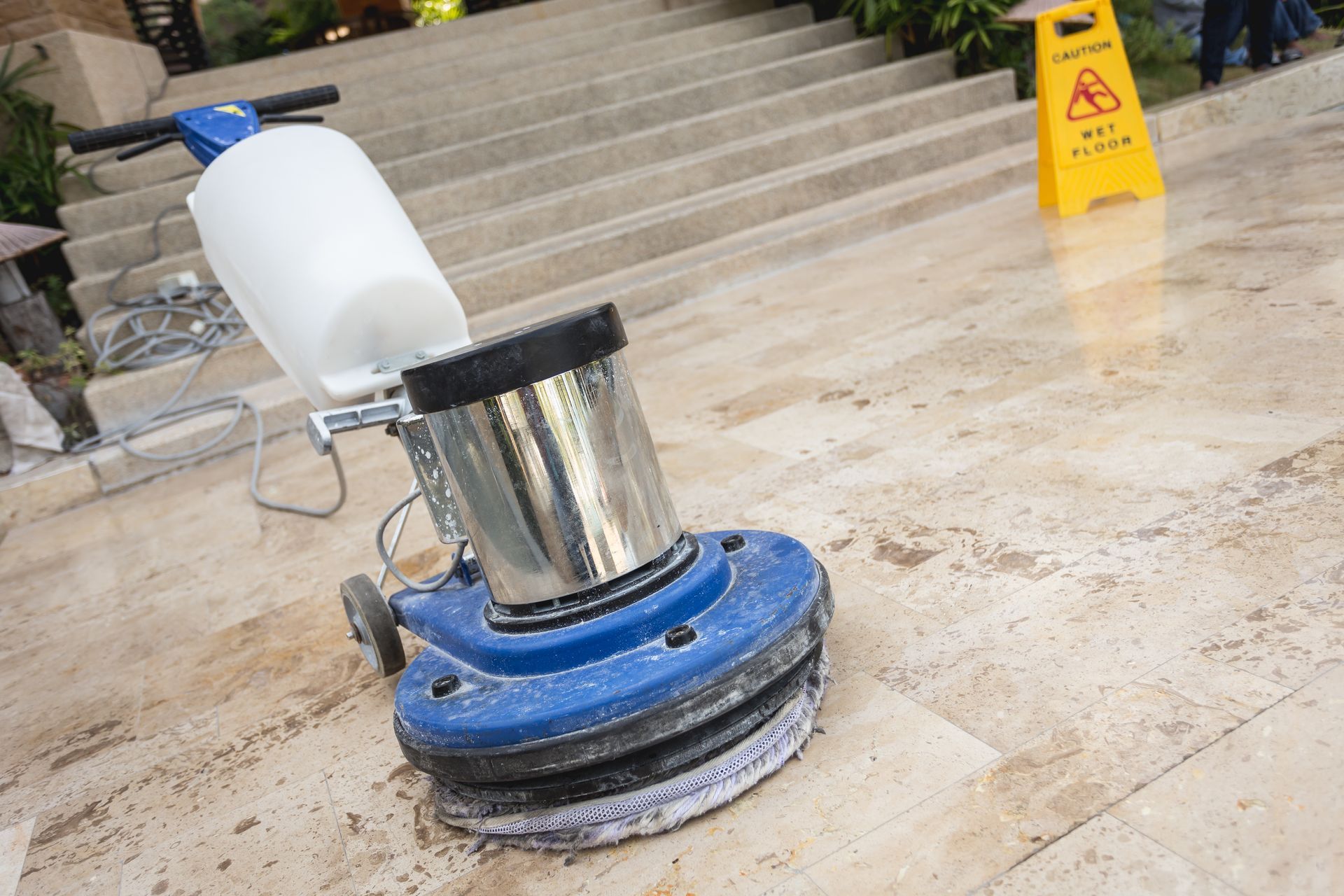The COVID-19 era brought increased awareness around hygiene and disinfection in our homes and businesses. While keeping surfaces clean and germ-free is essential, it's equally important to ensure that your cleaning methods don’t damage the surfaces themselves, especially when it comes to natural stone like marble, granite, limestone, and travertine.
Natural stone is beautiful and durable, but also porous and sensitive to certain chemicals. Using the wrong disinfectants can lead to etching, staining, and dulling of the stone’s finish. In this article, we’ll walk you through how to safely disinfect natural stone surfaces without compromising their integrity.
Why Traditional Disinfectants Can Be Harmful to Stone
Many common disinfectants contain acidic ingredients like vinegar, lemon juice, or bleach, which can:
- Etch the stone, leaving dull spots or cloudy patches.
- Break down sealants, reducing the stone’s resistance to moisture and staining.
- Discolor the surface, especially on light-colored stones like marble and limestone.
Even alcohol-based products can cause long-term issues if used too frequently or left on the surface without wiping.
Safe Disinfection Methods for Natural Stone
1. Use a pH-Neutral Stone Cleaner with Antibacterial Properties
Some stone-safe cleaners are formulated to disinfect without causing harm. Look for labels that specify:
- pH-neutral
- Safe for natural stone
- Antibacterial or antimicrobial action
These products are ideal for daily or weekly cleaning and gentle enough for regular use.
Pro Tip: Brands like StoneTech, Granite Gold, or Weiman offer stone-safe disinfectants designed for marble, granite, and more.
2. Use 70% Isopropyl Alcohol – With Caution
When stronger disinfecting is needed (such as after exposure to illness), isopropyl alcohol can be used, but carefully.
How to use it:
- Mix
70% isopropyl alcohol with
distilled water in a 1:1 ratio.
- Lightly mist the solution onto the surface.
- Let it sit for
30 seconds to disinfect.
- Wipe dry with a soft microfiber cloth.
- Follow with a pH-neutral stone cleaner to remove any residue and restore shine.
Avoid prolonged exposure, and never use alcohol on unsealed stone, as it can dry out or damage the surface.
3. Use Disposable Disinfectant Wipes , Sparingly
During peak COVID times, many people turned to disinfectant wipes. While convenient, most contain quaternary ammonium compounds or alcohol, which can harm natural stone over time.
If using disinfectant wipes:
- Test on a small, inconspicuous area first.
- Wipe the area with water and a soft cloth immediately after use.
- Don’t use regularly, save for occasional high-risk scenarios.
Disinfecting Products to Avoid
To prevent damage, do not use the following on natural stone surfaces:
- Vinegar or lemon juice
- Bleach or hydrogen peroxide
- Ammonia or window cleaners
- Generic antibacterial wipes (e.g., Clorox, Lysol) without rinsing
- Abrasive scrubbing pads
These can etch, dull, discolor, or weaken the protective seal on your stone.
Daily Cleaning vs. Disinfection
It's important to distinguish between cleaning and disinfecting:
- Cleaning removes dirt, oils, and debris from the surface.
- Disinfecting kills bacteria, viruses, and other pathogens.
For natural stone, daily cleaning with a pH-neutral cleaner is enough in most households. Reserve disinfecting for situations that truly call for it, such as illness in the home, handling raw meat, or post-exposure to public surfaces.
Don’t Forget to Reseal
Disinfecting, even with safe products, can gradually wear down your stone’s protective seal. To maintain water and stain resistance:
- Check your seal every 6–12 months.
- Reapply a stone-safe sealer if water no longer beads on the surface.
This will keep your stone protected and make cleaning (and disinfecting) easier in the long run.
Final Thoughts
Disinfecting your home shouldn’t come at the cost of damaging your beautiful natural stone surfaces. By choosing the right products and following a few simple precautions, you can keep your stone clean, sanitized, and stunning for years to come.
Need help restoring dull or etched stone?
Marble Stone Polish
offers professional stone cleaning, polishing, and sealing to bring your surfaces back to life, safely and effectively.
Contact us today for a free consultation!


